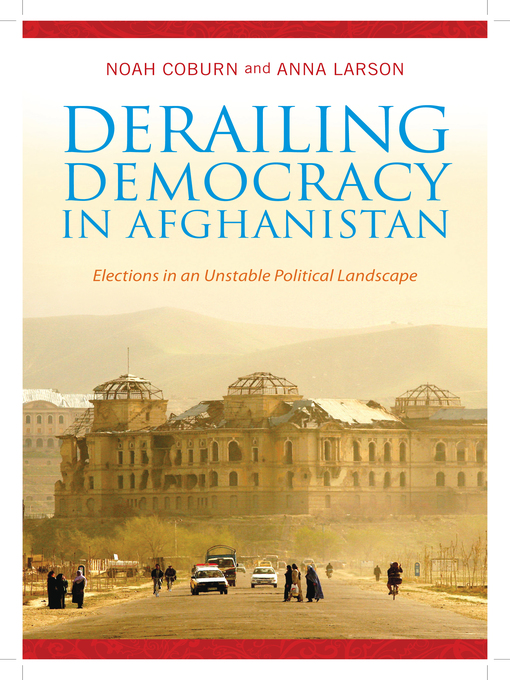Since the invasion of Afghanistan in 2001, researchers, policymakers, and the media have failed to consider the long-term implications of the country's post-conflict elections. Based on fieldwork in provinces across the country and interviews with more than seven hundred candidates, officials, community leaders, and voters, this book builds an in-depth portrait of Afghanistan's recent elections as experienced by individuals and communities, while revealing how the elections have in fact actively contributed to instability, undermining the prospects of democracy in Afghanistan.
Merging political science with anthropology, Noah Coburn and Anna Larson document how political leaders, commanders, and the new ruling elite have used elections to further their own interests and deprive local communities of access to political opportunities. They retrace presidential, parliamentary, and provincial council elections over the past decade and expose the role of international actors in promoting the polls as one-off events, detached from the broader political landscape. This approach to elections has allowed existing local powerholders to solidify their grip on resources and opportunities, derailing democratization processes and entrenching a deeper disengagement from central government. Western powers, Coburn and Larson argue, need to reevaluate their most basic assumptions about elections, democracy, and international intervention if they hope to prevent similar outcomes in the future.
-
Description
-
Creators
-
Details

- Noah Coburn - Author
- Anna Larson - Author
Kindle Book
- Release date: December 24, 2013
OverDrive Read
- ISBN: 9780231535748
- Release date: December 24, 2013
